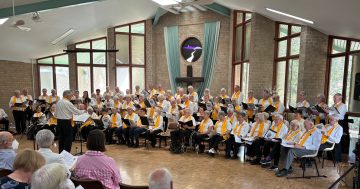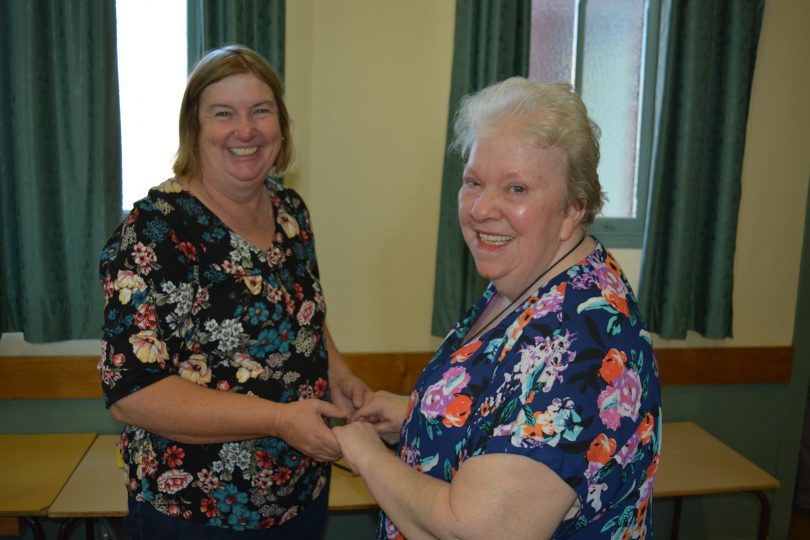
Jo-Anne Fitzsimmons and Mary getting their weekly dose of dance in Goulburn. Photo: Supplied.
On Tuesdays, all worries are danced away at Goulburn’s Masonic Village and Warrigal aged care homes.
Teacher Liz Barling appears via Zoom video conferencing on the living room screen at 10 am. There is plenty of pre-class chatter among the residents, who would normally be catching up over a cuppa at St Nicholas’ Anglican Church Hall, where classes are usually held.
But due to the COVID-19 pandemic, Zoom classes have become the new norm.
The Dance for Wellbeing class is a chance for Goulburn’s elderly and people with different abilities to come together, dance without being judged and get a dose of weekly exercise.
“We want to keep everyone connected because loneliness is such a big problem during the pandemic,” says Liz. “Anyone who is vulnerable needs to be isolated and feels anxious when they step outside, but they don’t need to be worried on Zoom.”
Liz signals that the morning’s choreography has begun by muting the other dancers’ screens while letting the music play through hers. Then the staff at the homes are available to assist residents through the moves, which is adapted to individuals’ needs so everyone can be up on the dance floor.
“Dance brings joy,” says Liz. “Celebrations are usually combined with dance so our system is set-up to receive dance as joy.
“Dance also breaks down barriers. You forget if you have a disability or if you are lonely because it brings out the joy from the last time you danced or heard the song.”
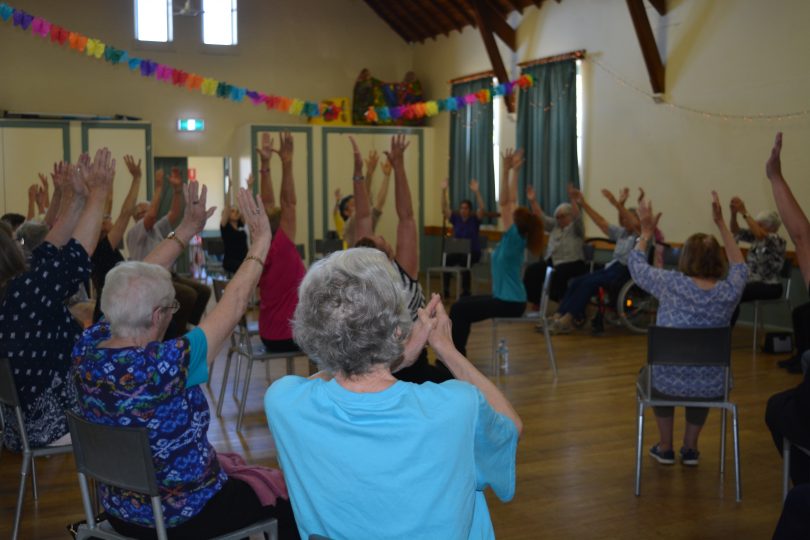
A Dance for Wellbeing class in action. Photo: Supplied.
Goulburn’s Bridge to Sing Choir has also been using Zoom during the COVID-19 pandemic to bring people together of all ages, abilities and from all walks of life through music at weekly rehearsals.
“Music therapy is about supporting people through music to achieve non-music goals,” says Clare Jones, choir leader and a registered music therapist with Goulburn Mulwaree Council’s community services team.
“It’s not about singing perfectly but being actively involved in music in whatever capacity you can be. So we have some guitarists, ukulele players and percussionists who make up our choir band, and we have people who just like to join in with body percussion or movement.”
Like the Dance for Wellbeing classes, choristers are muted while Clare sings and plays the guitar through her microphone. However, before and in between rehearsals, everyone’s microphones are turned back on and the momentary break is filled with lively chatter.
“The group members are so keen to check up on each other,” says Clare. “It’s been really important for us to have this opportunity to support each other and get our weekly dose of active music-making.”
The choir is helping to improve the health and wellbeing of choristers and challenge preconceived ideas about ability and disability.
Bridge to Sing also aims to build real inclusion in everyday life and has welcomed several new members during the COVID-19 pandemic who heard their housemates singing during rehearsals on Zoom.
“When you’re singing, you are breathing deeply and oxygenising your whole body and brain,” says Clare. “It’s really good for emotional expression, too.
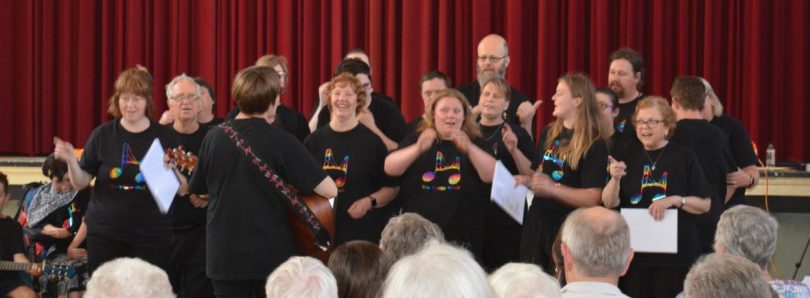
The Bridge to Sing Choir brings together people of all ages and abilities from all walks of life.
“As a music therapist, I am using the naturally engaging aspect of music to get people to open up to social relationships with other people in the group so not only are they feeling well and healthy but they are also able to make connections that are important to health and wellbeing.”
Staff at Goulburn Mulwaree Council’s community services and Southern Tablelands Arts, which runs the Dance for Wellbeing program, have been helping everyone to move online.
Southern Tablelands Arts executive director Rose Marin believes online classes are a thing of the future.
“Before the pandemic, there were people who couldn’t get to the Dance for Wellbeing classes because of mobility or health concerns,” she says. “Now that we know how to use Zoom, we are going to make sure the program always has an online offering to include those who need to remain at home.”
Rose also says the Bridge to Swing Choir will offer Zoom for members who can’t make rehearsals when they return to the Goulburn Community Centre post-pandemic.
Online classes can also support artists who have been among the worst hit during the pandemic – with galleries and performing arts spaces closed – but only with the community’s support, says Rose.
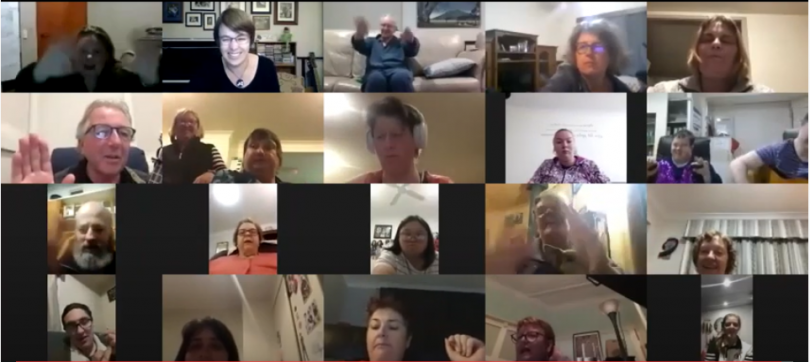
The Bridge to Sing Choir convening via Zoom video conferencing. Photo: Supplied.
“The next challenge for us and the community is understanding that online content still costs money to produce,” she says. “So if you’re going to an online concert, you still need a ticket because those people performing need to keep the wolf away.
“We all turned to the entertainment industry to keep us going through the pandemic and now we have to understand that we need to support these systems.”
New members interested in joining Dance for Wellbeing and the Bridge to Sing Choir should contact Southern Tablelands Arts and Goulburn Mulwaree Council, respectively.
Original Article published by Hannah Sparks on About Regional.












